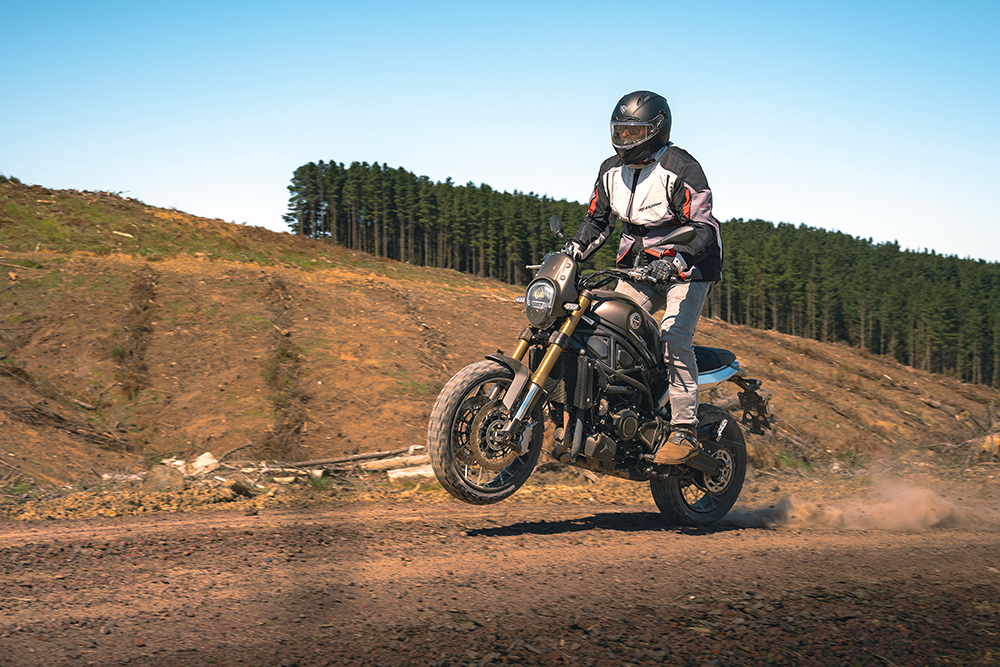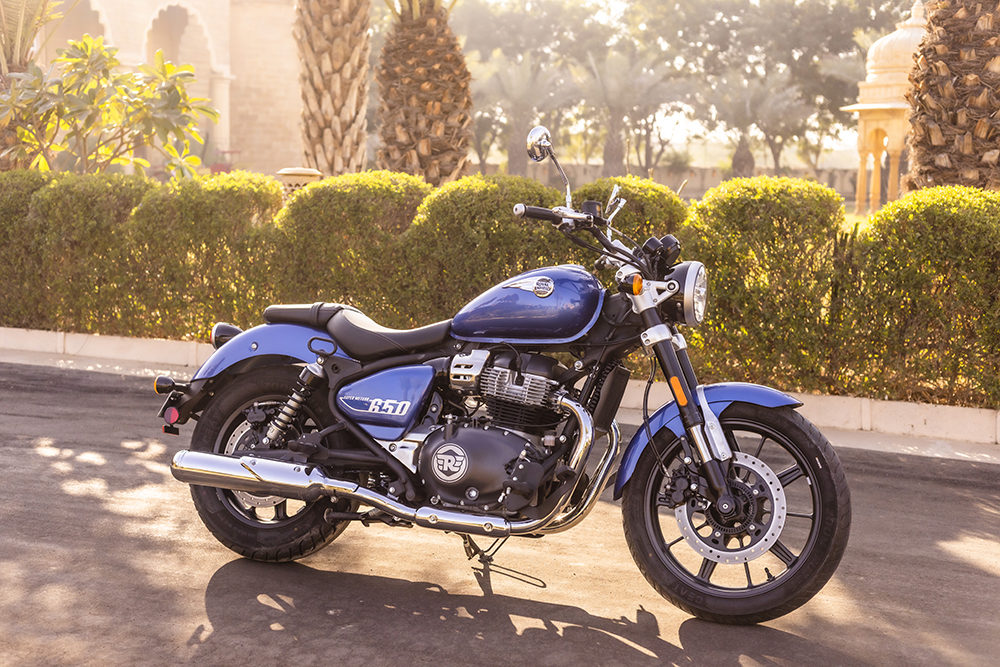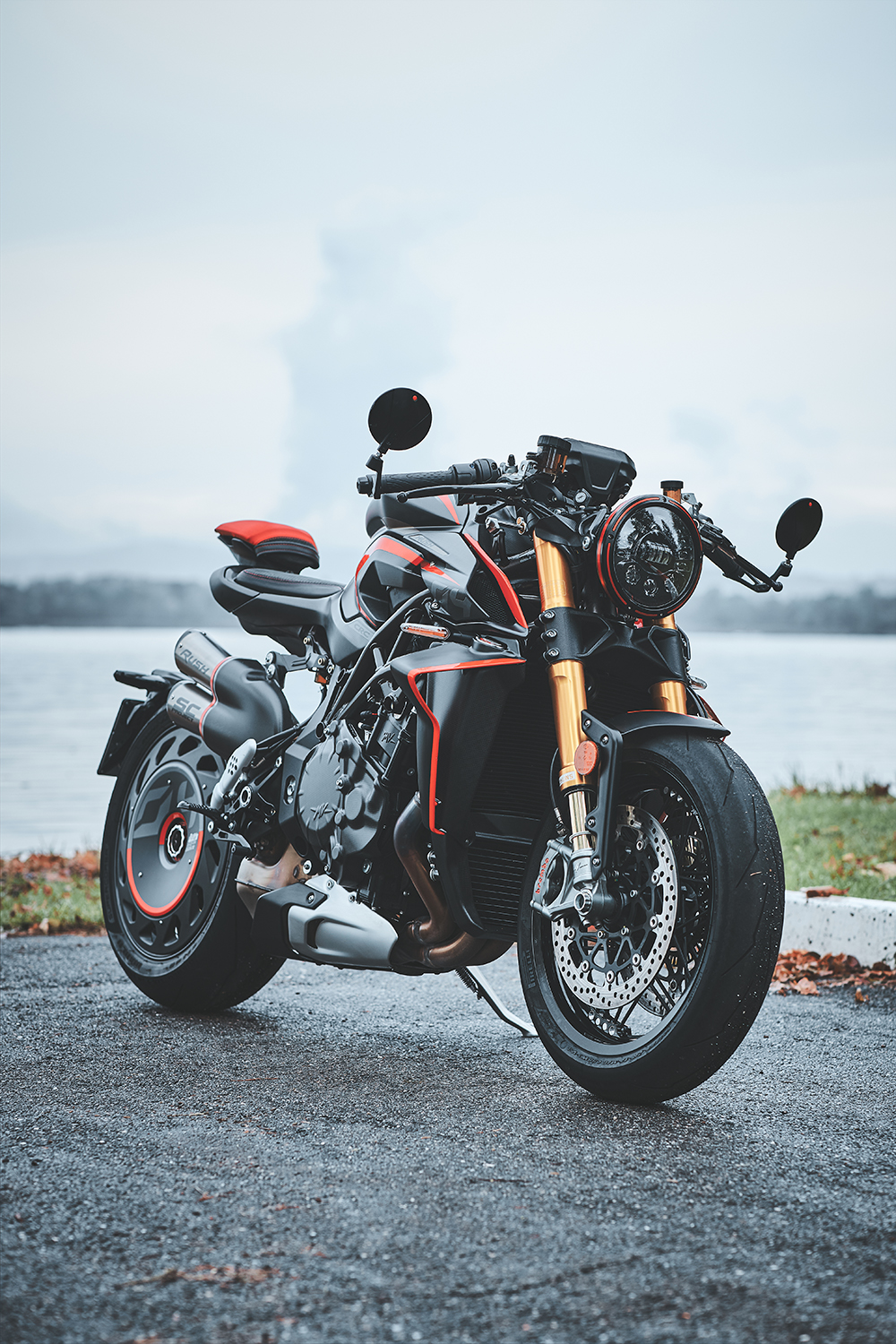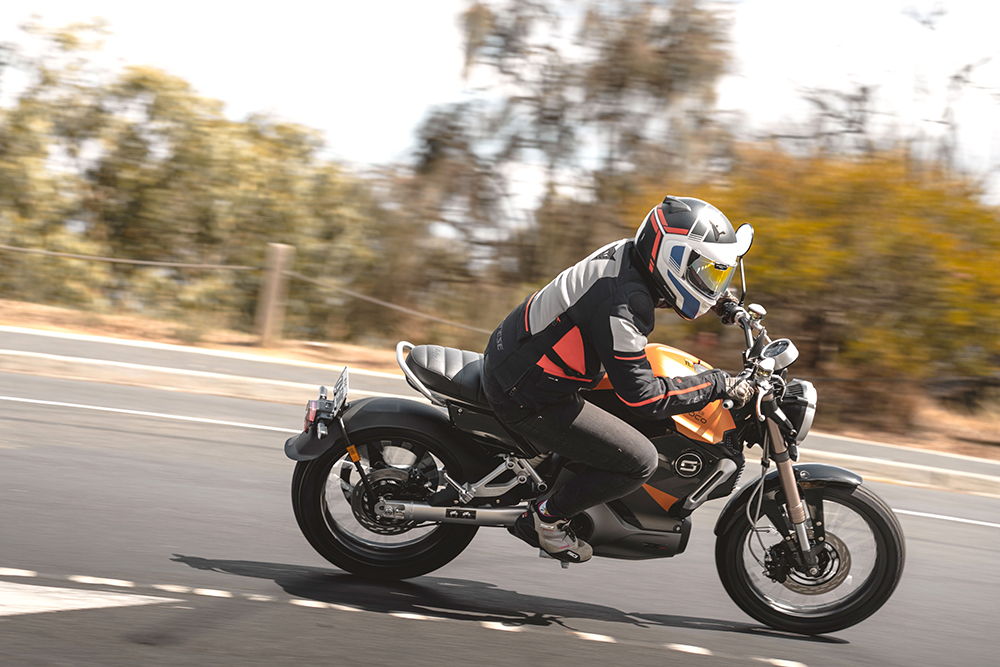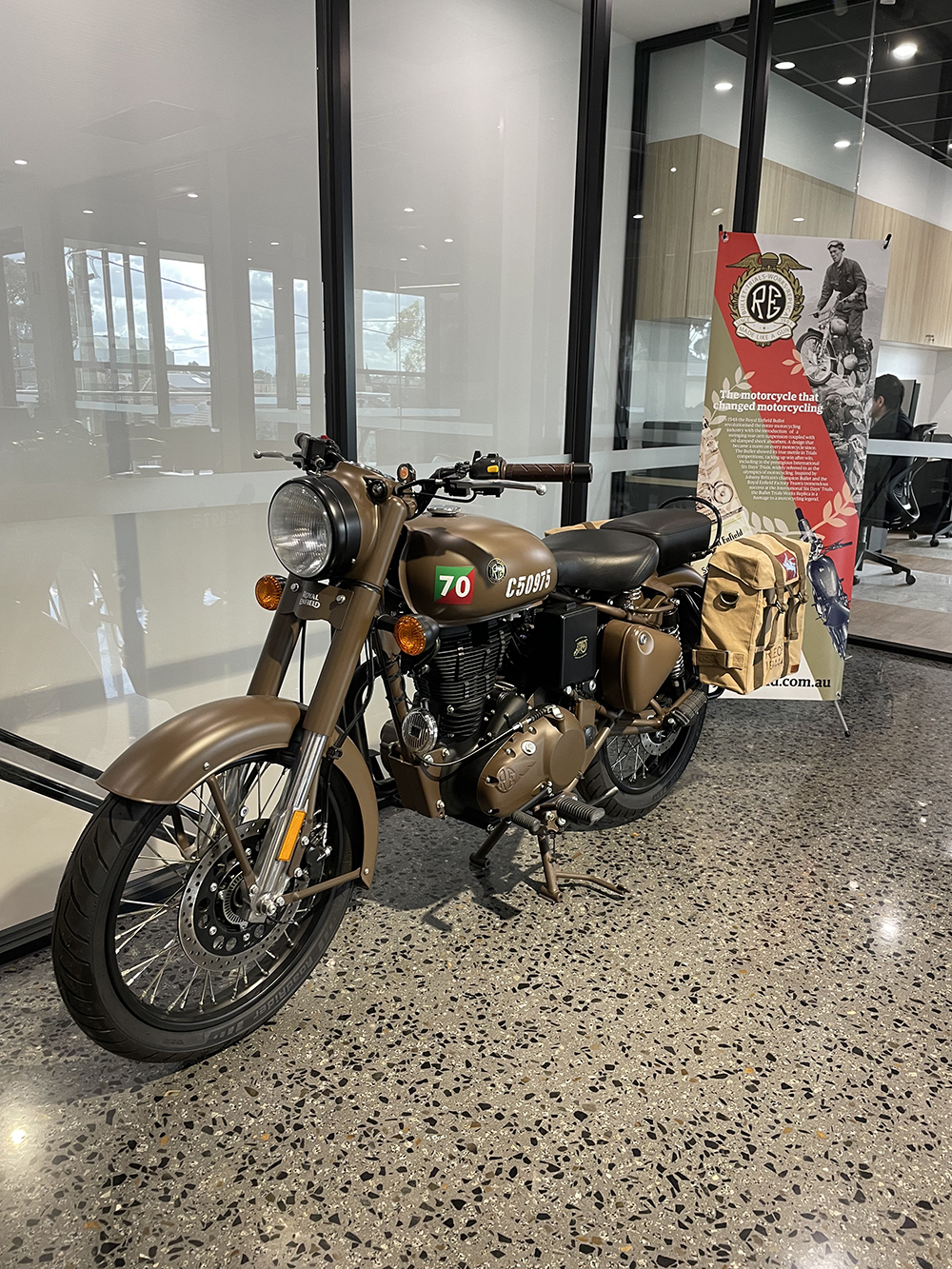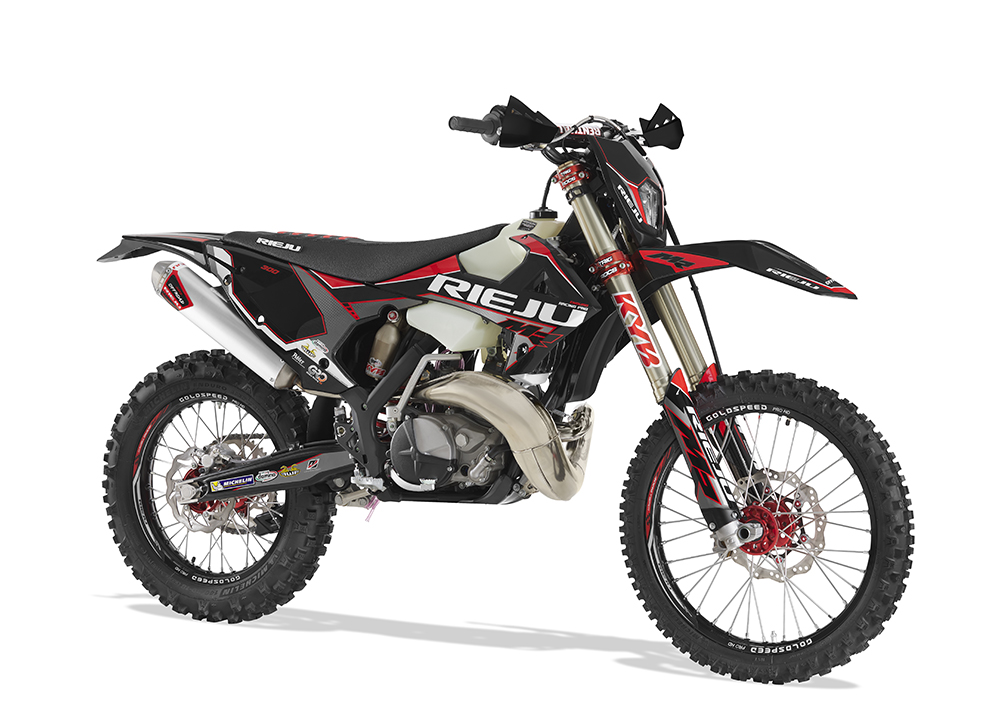Joe Elasmar is clever, passionate and just a little bit bold. And through his business Urban Moto Imports, he’s currently the largest independent motorcycle distributors in Australia
Joe Elasmar epitomises the phrase ‘you make your own luck.’ Educated decisions, calculated risks and plenty of hard work are how he’s found himself as the owner of the largest independent motorcycle distributor in Australia at just 38 years old. Even as a kid growing up in the southeast Melbourne suburb of Pascoe Vale, measured risks rather than hope and chance were what made things happen for him.
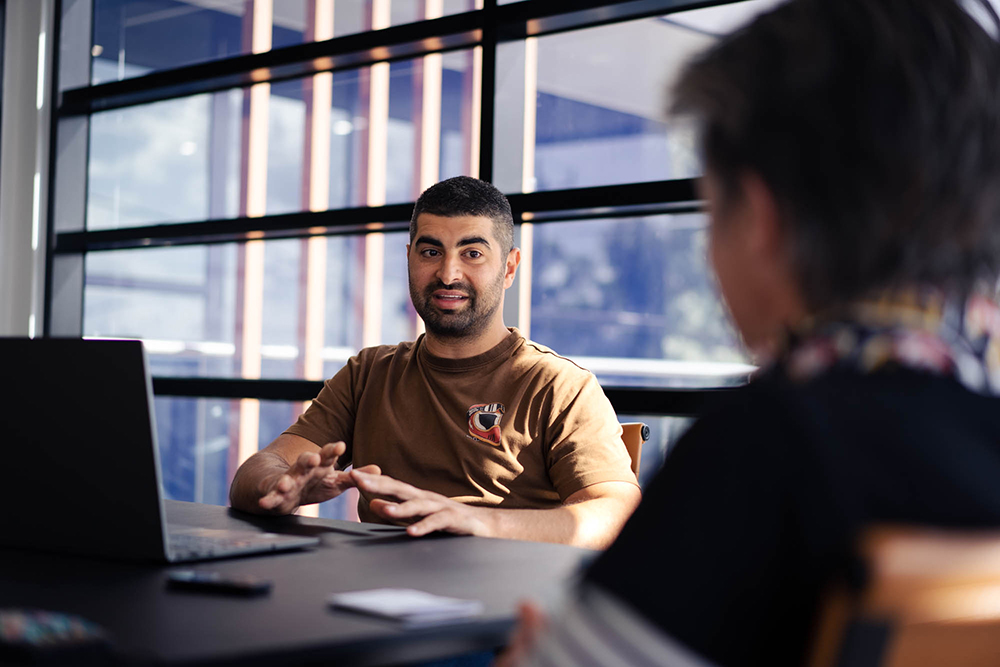
“I bought my first bike and my parents didn’t even know it was mine,” he grins. “I told them it was my friend’s bike who needed to store it at our place – it was a YZ80J.”
We’re sitting in the boardroom of a flash new 35-tenancy warehouse that he recently built, overlooking the suburb he grew up in. There’s a likeable shyness to his demeanour that belies the expanse of the new building around us, that not only houses his successful enterprise, but 34 other local businesses also. As well as a landlord, he’s a dad of three boys under 10 and he’s the sole director of Urban Moto Imports (UMI) which looks after the distribution of eight brands across Australia and New Zealand. With Royal Enfield, MV Agusta, Benelli, Peugeot, Super Soco, Rieju, Torrot and Segway in its portfolio, UMI celebrated its 10th anniversary in 2021 and the company has experienced steady growth in the face of what’s been reported as an industry in decline.
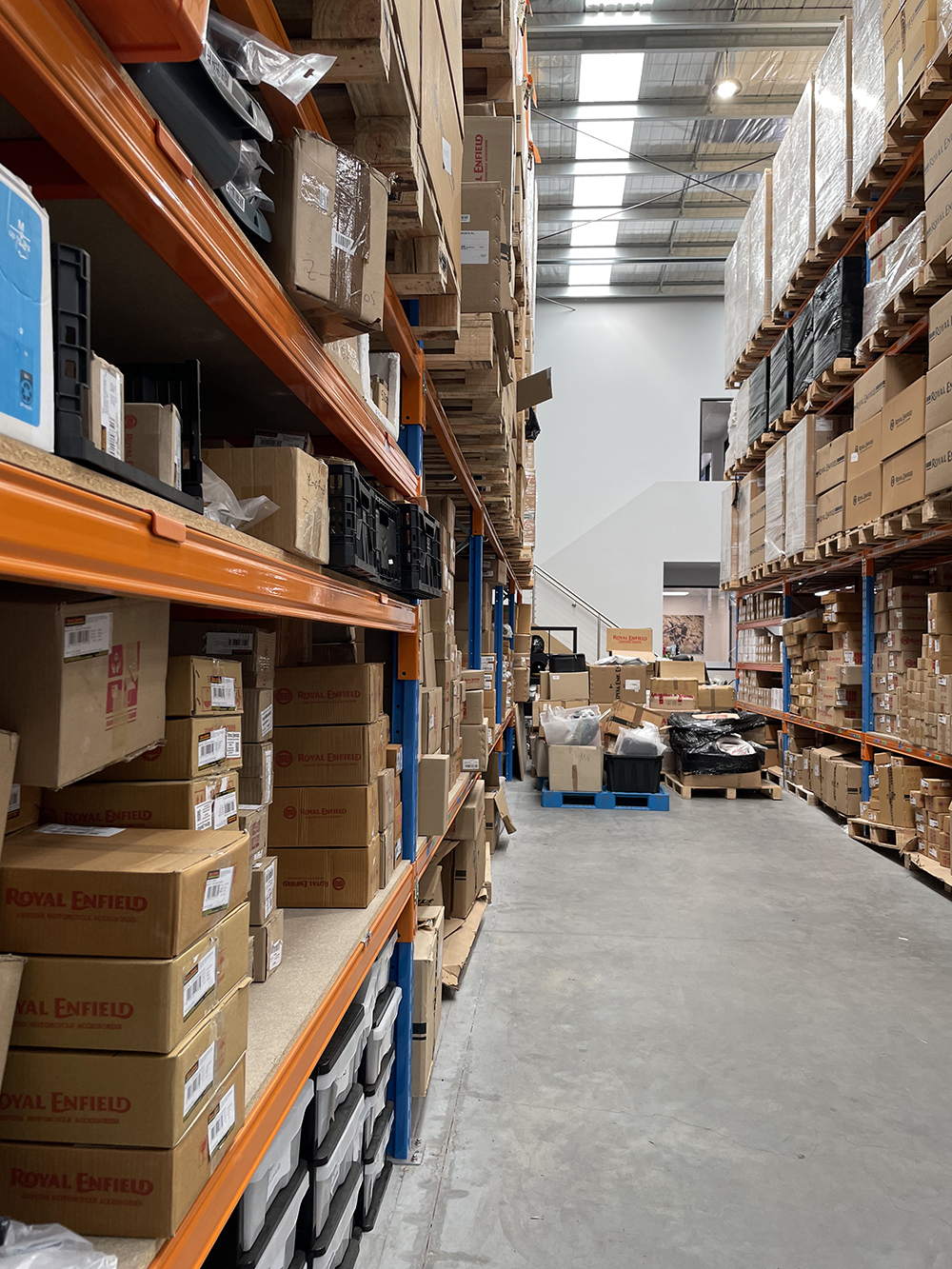
“UMI formed in 2011, but along the way I set up some retail, we were a dealer for a few different brands, but it wasn’t our thing,” he says, after admitting he began importing products out of Asia and the US when he was as young as 19. “I saw that there were so many unique brands that weren’t able to survive in this country as a standalone. So when the GFC hit, some of these brands exited the market, we had customers that owned certain product and to service and maintain them, we started to communicate with the factories. So out of necessity relationships were born, in the case of Benelli and Bimota, and in 2011 they said would you consider taking on the distribution?
“And then it was like, yeah, let’s sink our teeth into this. It was a big step, a big mindset change, a lot more red tape and we quickly discovered it’s a lot of hard work.”
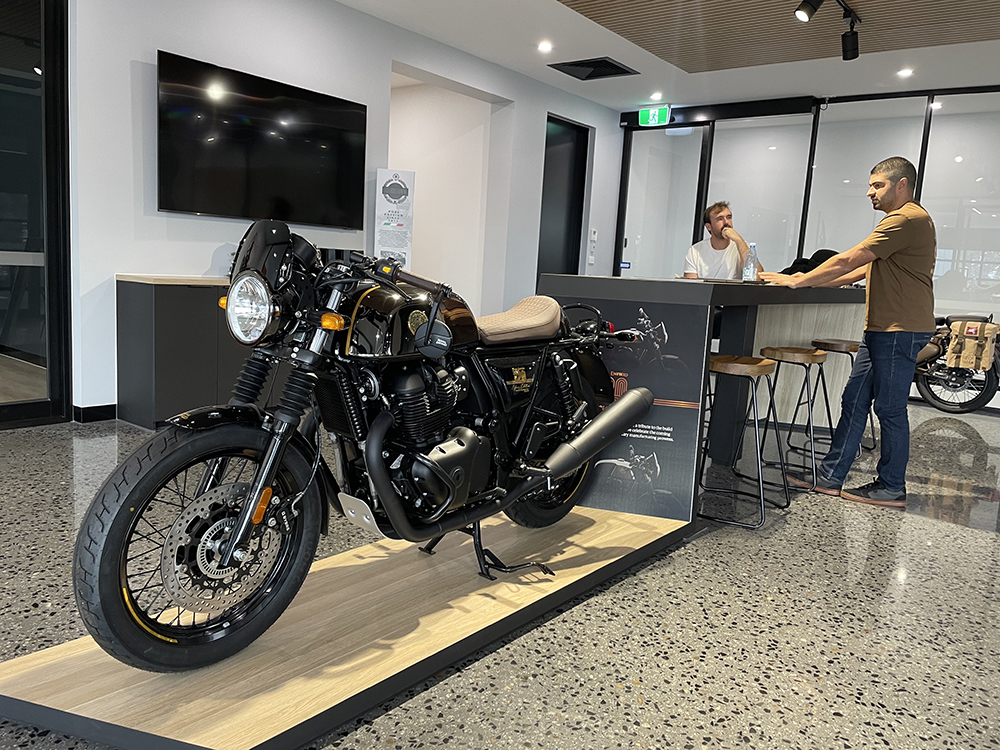
Talking to him, you get the impression he doesn’t mind a bit of hard work, but as the conversation progresses, it becomes abundantly clear he’s a bloke who likes to develop ways to work smarter, not harder. And when you’re a plucky 27-year old willing to take on what was a fairly traditional motorcycle industry dominated by corporate Japanese brands, hard work and self belief is key to success – but so is a fresh approach.
His team of in-house software developers is a good example. Where other businesses look towards commercially available dealer support programs, costs which would otherwise get passed onto dealers, UMI develops its own tailored to its individual needs.
“We’ve developed our own proprietary software out of necessity over the years, and we’ve developed something that really allows us to support our dealers without having to put a cost towards it,” he explains. “Recently we introduced some website iFrames which means dealers can basically just drop into their website and their website remains updated with all the most relevant data. They’re not having to go in and rebuild sites constantly; we’re maintaining it and doing all of that in the back end.
“And our B2B software gives dealers access to everything: it’s spare parts ordering, it’s accessories ordering, it’s vehicle ordering, it’s availability, it’s news, it’s service bulletins, it’s leads management and everything in between. It’s about making it as easy as possible for a dealer to have a customer standing in front of them and be able to give them all the answers they require.”
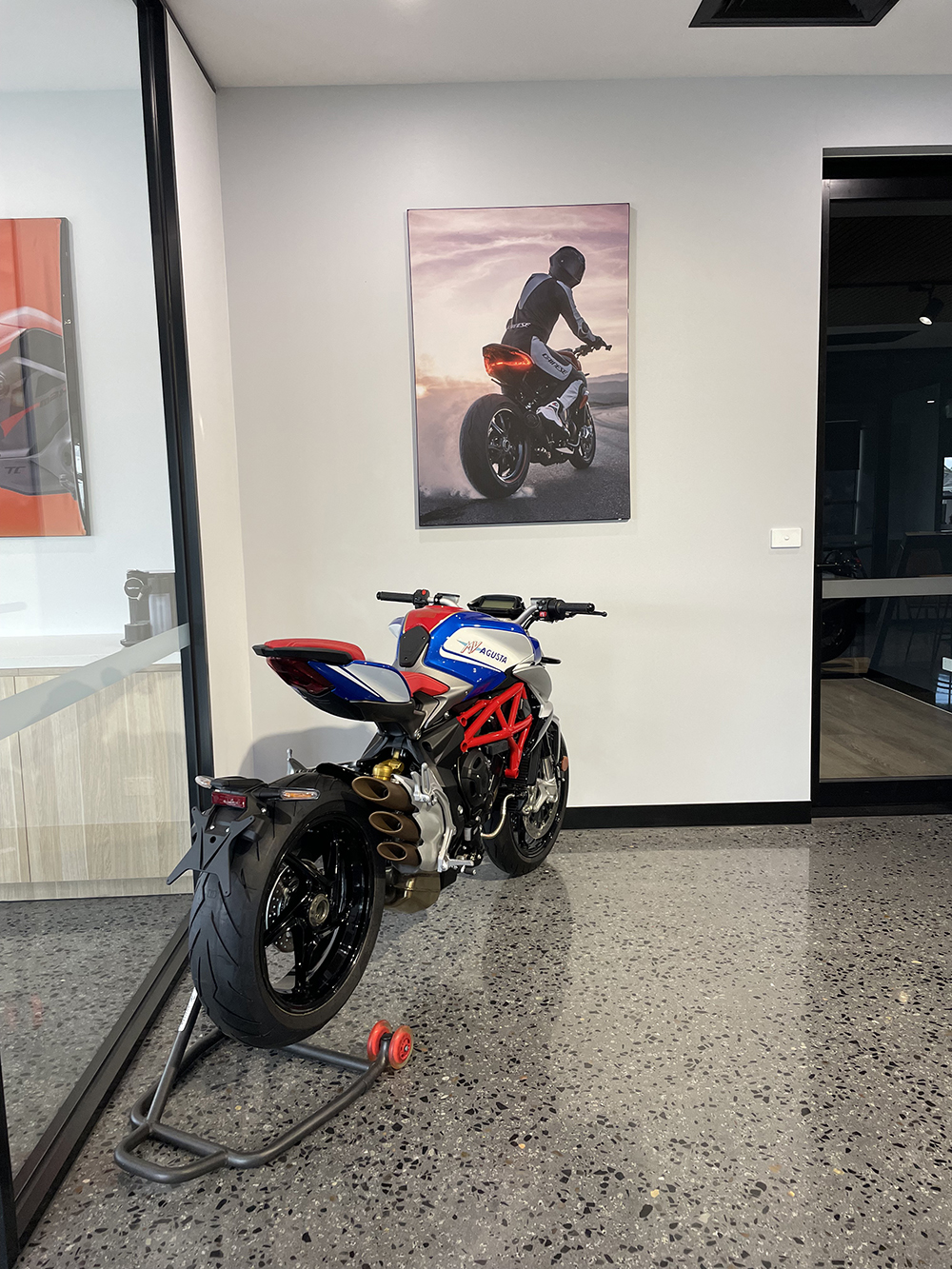
Another approach UMI puts plenty of focus towards, and especially with Royal Enfield, is building like-minded communities through UMI-led experiences long after the financial transaction has been completed.
“The amount of people who are willing to start motorcycling or return to motorcycling because of our brands, we’re really focused on that. The community-building activities that we do, that’s really what drives a lot of this,” he says.
“We’ve got a big push and a big focus in the year ahead to redefine what it is that we need to be delivering to dealers, what dealers need to be delivering to end customers and together, what it is that we can provide the customer in terms of experience and community.”
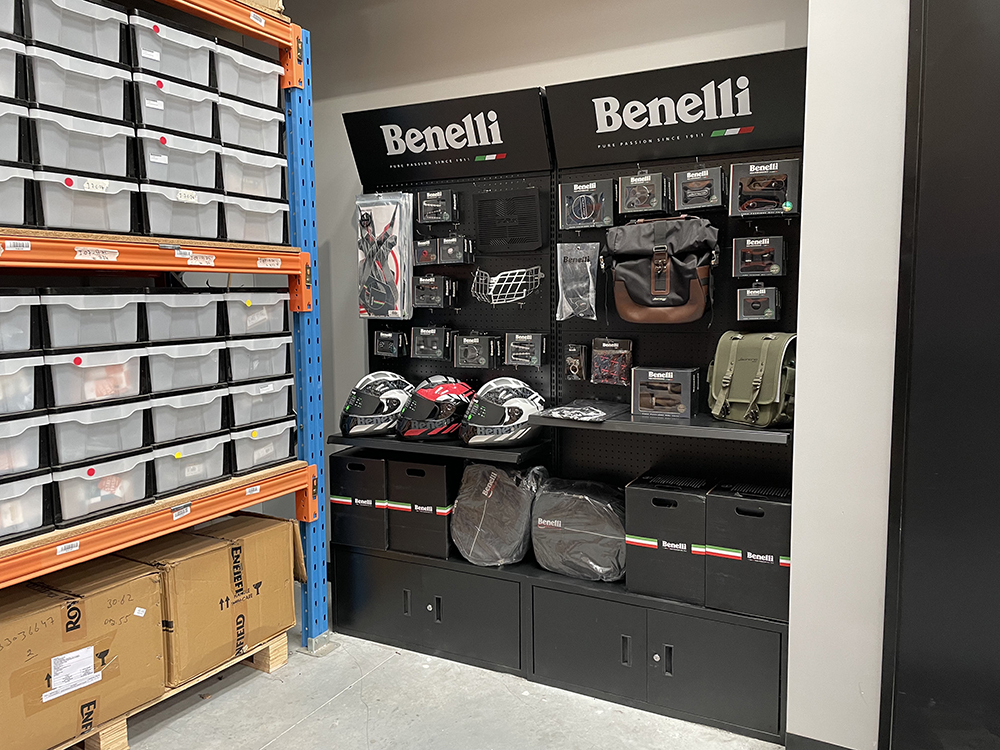
Twelve years ago, the Australian motorcycle industry looked a lot different than it does today. Lead by Honda, the big four Japanese brands ruled the Australian sales roost, with Harley-Davidson the next best performing brand convincing Aussies to part with their hard-earned.
According to the figures reported by Federal Chamber of Automotive Industries’ (FCAI) membership, sportsbikes dominated the sales charts and there wasn’t an adventure bike to be seen in the list of best-selling roadbikes; that year BMW sold just 265 units of its R 1200 GS compared to 2172 Honda CBR250Rs.
In 2011, there were as many as 45 paid-up members of the FCAI. Today, according to the organisation’s website, that membership has shrunk to just 17 brands. Admittedly, there were brands in Australia 12 years ago that no longer exist which would have contributed to the decline – marques like Megelli, Hyosung and Victory, for example. But there are others, too, like Elasmar’s growing portfolio, that can’t necessarily justify the cost of FCAI membership, nor do they feel the need to fall into line with their peers just because that’s how it’s always been done.
“Look, in the early stages, putting all of our [sales] numbers out there, when you’ve got these major conglomerates focusing and honing in on you to know exactly what you’re doing and where you’re doing it – it didn’t make sense in that regard for us,” he explains. “We’ve put forward that we’d be willing to possibly come to an arrangement and submit our numbers forward, but from my understanding, the willingness to reciprocate data wasn’t there without being a member.”
Which might go some way in explaining why the FCAI stopped reporting sales results for individual brands and machinery at the end of 2020, opting in the reporting periods since to only publish overall numbers across the industry’s four segments: roadbikes, off-road bikes, scooters and UTVs.
And it’s no coincidence that UMI imports brands into all four sectors. In terms of roadbikes, there’s Royal Enfield, Benelli, MV Agusta and Super Soco; off-road brands consist of Spanish marques Rieju and Torrot; scooters are covered off with Peugeot and Super Soco; while the UTV end of the market is looked after by Segway, which is Elasmar’s most recent acquisition.
“We’ve gone from a few hundred units annually when we first started out [in 2011] to close to 6000 units annually across Australia and New Zealand,” he offers. “It’s significant growth, but I think the area where we’ll see a lot more growth is in the mining and agricultural space with Segway.”
The fact that UMI took on an ATV brand at the time big hitters like Yamaha and Suzuki were withdrawing from the market due to the increased complexities caused by the controversial mandate of installing roll-over protection devices (ROPs) to all vehicles, is yet another example of that measured risk Elasmar is so good at.
“As for the ROPs, it wasn’t too complex,” he said before he stopped himself and started again. “Actually, I shouldn’t say it wasn’t too complex. We spent the time with lawyers, with stakeholders, understanding the procedure early on. We worked with a department out of New South Wales, which is one of the government testing facilities, and worked with a locally accredited provider, and together we were able to provide a product to the market which not only meets the standards, but exceeds them.”
In 2019, UMI imported a range of Super Soco electric commuter bikes and, as far as Elasmar’s aware, was the first in Australia to do so. Risky business in a country as big as this one, populated by generations of people bought up on classic petrol-powered machinery.
“If you compare Australia and New Zealand with Europe and other parts of Asia, we are way behind,” nods Elasmar. “But in a small commuter product, electric makes sense. It’s allowed us to become very familiar with electric technology and it’s also allowed us to go into the dealer network and open their eyes. Yes, in the early stages it was disregarded in the sense that it’s just too much of a learning curve for the traditional motorcycle dealership. Now that acceptance is definitely in a much better position.”
But it’s not just dealers and would-be owners who need convincing to adapt to new technologies around urban mobility, as Elasmar found out when he was involved in the introduction of Australia’s first-ever rideshare platform that same year. As well as supplying the scooters, UMI developed the software interface and devices that talked to the main servers in order to engage or disengage the vehicles as and when a ride-share user required it.
“It was shortlived,” he says. “The company we worked with took about 50 Super Soco units at the time, they were a European company trying to launch in Australia and they came up against stumbling blocks and hurdles with government and councils and whatever else.
“But I think cities are starting to understand there’s an increasing need for mobility and maybe that doesn’t look like a registered vehicle as such, so it’s a case of understanding where these two worlds collide.”

As well as having the distributorship for MV Agusta in Australia and New Zealand, in 2017 UMI became the official distributor for Canada and North America.
“I was there for just a bit over three years, but with the change in management in MV and what they wanted to achieve, I said ‘guys, there’s an opportunity to buy the company back off me’, and in March 2020 that happened, just before Covid hit,” he says. “For me, it was perfect timing. We were able to exit that and then remain focused on everything else, we had a massive growth phase over those few years so it needed serious focus.”
With KTM’s recent acquisition of 25.1 percent of MV Agusta and its intentions to increase that considerably in the coming years, it must feel like groundhog day for Elasmar who was the official importer for GasGas before KTM purchased the brand, forcing Elasmar to relinquish it.
“At the moment, we’re still operating, we’re still selling MV and we’re still supplying spare parts, but there is more news that will come from that,” he says. “At the moment we’re going through a bit of a process with KTM, so we’ll see where that lands. From everything we’ve discussed so far, they’ve been very positive and the willingness to want to work with us is there; it’s just a case of everyone being able to agree on whatever it might be in the final stage.”

The new UMI facility is much larger than the last
MV has played an important role in getting UMI to where it is today, with Elasmar taking over the distributorship of the Italian brand in Australia and New Zealand in 2015 and then having the confidence to take on North America two years later. And as well as a 120-year Royal Enfield Continental GT parked in the middle of the room, which Elasmar says he “absolutely loves”, there’s a MV Agusta Brutale 800 America parked in the corner which has particular significance to him.
“When I took over North America, one of the things that I’d arranged with Giovani Castiglioni was that I said ‘hey, let’s create a special edition to announce this new takeover of North America, let’s create 50 special-edition Brutales to celebrate the 50 states of North America.’ I got number one off the production line and brought that here to Australia, I think he took number 12, and the rest went to the US.”
Elasmar’s passion for motorcycles is pretty clear to see. That same passion that drove him to buy himself a two-stroke dirtbike three decades ago and convince his parents it was someone else’s is still what gets him out of bed these days. And dirtbikes are still very much an important part of his life.
“I’ve got my Rieju MR300 Pro and that’s my weekend bike, and my kids are on their Torrot motocross bikes. I’ve got three boys; Jackson is nine, Jordan’s almost seven and little James is two and they all love bikes,” he grins. “My wife Diana is a little bit concerned that she’s being overrun by all these boys that ride motorcycles, but she loves seeing them out there happy – she’s got to close her eyes sometimes!
“But anything with two wheels and it’s a good day out.”
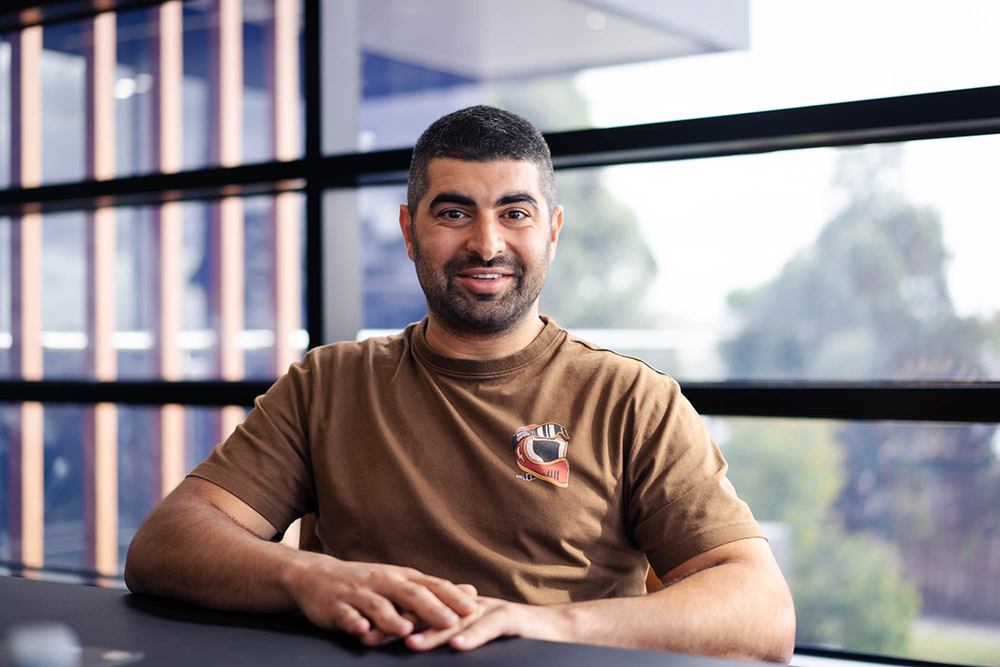
Interview Kel Buckley + Photography Matty Hayman & AMCN archives
